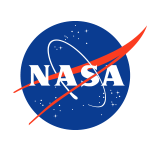In-flight Diagnostic Capability for Crew Health by DESI-mass spectrometry
Project Description
The goal of this project is to develop a flight-compatible, direct analysis mass spectrometer that can enable in situ diagnostic analyses for crew health and environmental monitoring of chemicals. Mass spectrometry is a powerful technique for the identification and quantitation of biomarkers and chemicals, and direct analysis sources including desorption electrospray ionization (DESI) minimize the amount of sample preparation required. This project would allow in-flight diagnosis of DNA damage from radiation, monitor nutrient uptake and stress hormone production, track bone loss through biomarker analysis, and perform metabolic panel analysis to track organ health and function. Because analyses are performed with automated programs, new assays could be designed and implemented during the course of a flight mission through software updates, without needing to supply new reagents consumables. In-flight diagnostic capability is critical for spaceflight beyond the Earth-Moon system, both for the maintenance of crew health during the mission, and for understanding the effects of space travel on humans. Alternative approaches such as cold stowage of crew samples for future analysis become unfeasible as the number of crew members and duration of the mission increases due to volume limitations of Orion and other crew vehicles and also preclude informed real-time intervention. Without in-flight diagnostic capability, we will be severely limited in our ability to understand the effects of deep-space flight. The goal of this project is to develop a flight-compatible desorption electrospray ionization mass spectrometer (DESI-MS) that can enable in situ diagnostic analyses for crew health and environmental monitoring of chemicals. Mass spectrometry is a powerful technique for the identification and quantitation of biomarkers and chemicals, and direct analysis sources minimize the amount of sample preparation required. This project would allow in-flight diagnosis of DNA damage from radiation, monitor nutrient uptake and stress hormone production, track bone loss through biomarker analysis, and perform metabolic panel analysis to track organ health and function. Because analyses are performed with automated programs, new assays could be designed by crew health experts on Earth and implemented during the course of a flight mission, through software updates. Assays of compounds of interest would be pre-programmed into the instrument and the data sent to Earth in an automated fashion. The proposed DESI-MS directly addresses the need for in-flight diagnostic capability called out in 6.3.1.3. Year 1 of this project will be an evaluation of the DESI-MS technique on laboratory instruments at JSC. Year 2 will be developing the prototype miniaturized DESI-MS instrument to position it for future funding opportunities (STTR, REDDI, etc.) to further mature the TRL. The proposed technology will miniaturize recently developed ionization technology to enable direct analysis of samples in situ with no sample preparation required. We plan to evaluate the Desorption ElectroSpray Ionization - Mass Spectrometry (DESI-MS) system for effectiveness on biomarkers of interest (bone loss, DNA damage, nutrition, etc.) and then packaged in a spaceflight-compatible form. The resulting instrument and assays we develop will be applicable for field / remote medicine applications all over the world, and will complement work done by National Institute of Health, Department of Defense and others for remote field medicine.
More »Anticipated Benefits
On long-duration missions, diagnostic capability will be needed to monitor crew health and inform real-time medical treatment. This technology will allow in-flight analysis of blood, urine and saliva samples with minimal or no sample preparation. The mass spectrometry approach will enable new assays to be designed and implemented through simple software updates without need for re-supply, removing the constraints of looking for predetermined markers. Comparable instruments are: the ion mobility spectrometer, which can only measure volatile gases and identifies them by mobility (not mass spectrometry); and gas chromatograph mass spectrometer for environmental monitoring, which has a mass spectrometer but can only measure volatile components of a sample, and non-volatile components must be removed prior to analysis; and the rHEALTH instrument, which uses nanostrips that must be designed specifically for each targeted marker and assays cannot be changed without re-supply of materials.
More »Primary U.S. Work Locations and Key Partners
| Organizations Performing Work | Role | Type | Location |
|---|---|---|---|
 Johnson Space Center
(JSC)
Johnson Space Center
(JSC)
|
Lead Organization | NASA Center | Houston, Texas |
 Goddard Space Flight Center
(GSFC)
Goddard Space Flight Center
(GSFC)
|
Supporting Organization | NASA Center | Greenbelt, Maryland |
 Nutritional Biochemistry laboratory
Nutritional Biochemistry laboratory
|
Supporting Organization | NASA Other | |
| Purdue University-Main Campus | Supporting Organization | Academia | West Lafayette, Indiana |
| Co-Funding Partners | Type | Location |
|---|---|---|
| Exploration Capabilities | NASA Program | |
| JSC Life Sciences | NASA Other | Johnson Space Center, Texas |
Primary U.S. Work Locations
-
Indiana
-
Texas


